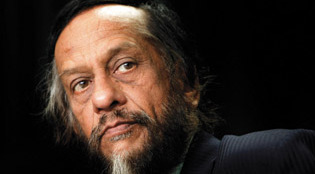 loading
loading
Light & VerityClimate researcher faces criticism Associated PressRajendra Pachauri, who directs Yale's Climate and Energy Institute, has been under fire. View full imageLast July, the peripatetic engineer, economist, and Nobel Peace Prize winner Rajendra Pachauri added a new part-time job to his schedule: founding director of the Yale Climate and Energy Institute. But since early this year, Pachauri, who chairs the United Nations Intergovernmental Panel on Climate Change (IPCC), has also kept busy responding to charges of financial irregularities and flawed science at the IPCC. In January, British newspapers began publishing articles critical of the IPCC’s 2007 report on climate change, claiming the report includes exaggerated and misleading information. The IPCC acknowledged that the report’s claim that the Himalayan glaciers could melt by 2035 was “poorly substantiated,” and in March the IPCC announced that it had commissioned an independent review of its research procedures. “The IPCC stands firmly behind the rigor and reliability of its Fourth Assessment Report from 2007,” Pachauri said in announcing the review. “But we recognize that we can improve.” Pachauri also faced charges of conflict of interest this winter stemming from his job as director of the Energy and Resources Institute (TERI) in India. Critics accused Pachauri of profiting from consulting work for private-sector companies such as Toyota and Deutsche Bank. In March, an audit by the accounting firm KPMG—commissioned by TERI—cleared Pachauri of wrongdoing, finding that the consulting fees were paid to TERI. The questions raised about the IPCC report come as public doubts about the reality of manmade climate change are growing. A survey conducted in December and January by George Mason University and Yale’s environment school found that 57 percent of Americans think global warming is happening, down from 71 percent in October 2008. Pachauri was unavailable for comment, but geology and geophysics department chair David Bercovici says the criticisms of the IPCC are a “red herring” designed to tie up resources and the time of climate scientists. “The increase of CO2 is off the scale,” says Bercovici. “Nobody argues this anymore. The question is what happens afterwards. These are highly chaotic, nonlinear systems. But we have a good idea how these things work, and it’s likely we’re playing with fire.”
The comment period has expired.
|
|